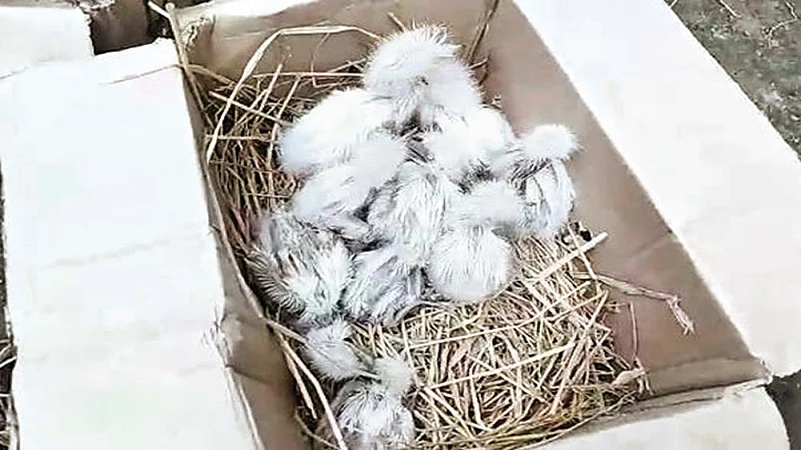Rumours, superstition and lack of scientific temper make for a deadly cocktail. Lethal enough to kill an estimated 250 egret and cormorant chicks in Assam late June. A civic body in Tangla township, about 90 km from capital Guwahati, decided not only to act on people’s complaints about foul smell created by bird droppings in a locality, but even invented the idea that the unhygienic conditions could lead to spread of the coronavirus.
On June 8, the Tangla Municipal Board served notices on a few people, asking them to cut down the bamboo groves where a large number of birds of three species—cattle egret, little egret and little cormorant—were nesting. A copy of the notice was marked to police, but not to the forest department. The notice went unheeded at first, but on June 24, a few unidentified people felled a grove, bringing the nesting chicks crashing down. Only 88 survived and these were sent to the Centre for Wildlife Rehabilitation and Conservation (CWRC) at Kaziranga for treatment and rehabilitation (in pic). But only a few may survive as over 50 of them are said to be critical.
The incident sparked angry reaction on social media, with people sharing photos and video clips of the traumatised chicks crying for help. As the outrage grew, chief minister Himanta Biswa Sarma asked forest and environment minister Parimal Suklabaidya to probe the incident. In fact, June was a particularly bad month for wildlife in Assam, which is home to unique and endangered animals and birds, including the one-horned rhino. It emerged later that an adult Royal Bengal Tiger was shot dead by a forest guard on June 18 in a village near Kaziranga National Park. The incident was described by the department as “unwarranted”. The guard has been suspended.
In the Tangla incident, wildlife lovers have called for exemplary punishment. Udalguri deputy commissioner P. Uday Praveen served a show-cause notice on the executive officer of the Tangla Municipal Board for spreading rumours. “Besides, the forest department has also lodged a complaint with the police with the regard to the felling of the bamboo grove leading to the deaths,” he said.
Experts were shocked by the sheer lack of knowledge about nesting birds. Soumyadeep Datta of Nature’s Beckon said it is now the season for nesting of these birds. “The officer ought to have known these birds were nesting in the bamboo grove and should not have taken such an action,” he said. “More serious was the false campaign on coronavirus which can have a ripple effect elsewhere and lead to more such incidents.”
Shamsul Ali, a veterinarian at the CWRC, who is looking after the rescued chicks and also hails from Tangla, said the birds would have gone away in a couple of months anyway so there was no need for such an action. “They come and nest in the bamboo groves in that area during this time of the year and once the chicks are ready to fly, they leave,” he said.
Rathin Barman of Wildlife Trust of India also regretted that such rumours related to Covid could be spread and that too by a responsible government official. “Can’t tell how the officer got such an idea, but it only shows that authorities must be on guard against such loose talk,” he said. “It is ironical that these birds select their nesting sites close to human habitation because there will be less risk from predators, but in this unfortunate incident humans had turned predator.”
By Dipankar Roy in Guwahati


























